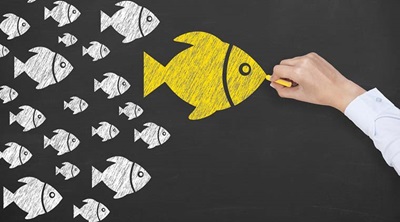Many years ago, as a new office worker, I complained to my father about the politics of my office and how much I hated them. I just wanted to do good work and forget about the rest. He quickly replied that it wasn't possible not to be involved in office politics; it was just part of life. Politics were everywhere, not only in the office, so my best bet was to learn to manage them. A big part of effectively managing office politics is building my influence muscle so that I can get things done when I need to.
Because I want to become more influential, relationships are my goal. I don't mean building relationships to build myself up and manipulate things for my advantage. Instead, I want to build relationships for the good of the team as well as myself, to make working together happen more smoothly. These types of relationships are the cornerstone of influence, and I've learned just how necessary they are to being an influential person who gets things done.

One hundred years ago (1918) Charles Riborg Mann published his findings in a Study of Engineering Education. Since then, Harvard University, the Carnegie Foundation, and Stanford Research Center have come to the same conclusion. 85% of job success comes from having well-developed soft and people skills, and only 15% of job success comes from technical skills and knowledge.
Think about that. If I'm incredibly skilled in the technical areas of my job, but I don't I get along well with my coworkers, I won't succeed. Upon reflection, I realized that was why it took me a full year to feel like I'd mastered my job. I had all of the skills I needed to develop instruction and do my work, but it took a year for me to build relationships with all of my stakeholders, understand their needs, know where I could push a little more, and know when I should back off a bit. I learned what I needed to do to meet my stakeholders' needs, and who to go to when I needed something.
Sure, you can sit down and look at an organizational chart, but that doesn't tell you who can get things done, nor what people need from you. A lot of people think influence comes from the organizational chart - the higher up you are, the more influential you are. That is true, but it is also the weakest type of influence in the office because it is quite restrictive and incredibly hard to change. A CEO who hasn't gotten to know his team and others in the organization is going to be far less effective than one who has taken the time to build relationships throughout the organization.
Learn how to maximize the impact of your influence. Join us for #ICMIchat at 1:00 ET on Tuesday, August 6.
If the CEO wants to throw a switch to get a machine going, he can command someone to do it, but unless he tells the right person to throw the switch, nothing will happen. The person who knows where the switch is and what to do first has far more influence in this situation.
We see this happen all the time in organizations. In the contact center world, it is what happens when Marketing sends out a flyer without letting the contact center know ahead of time. It's when the company is rebranding a product or service and gives training a week to rebrand everything in the curriculum when it takes a month to identify and change everything. It's when IT makes a "minor" change to systems while I am out-of-town, and I can't get the message out to others promptly. I build my influence when I get to know people in marketing, IT, finance, and other departments, and they get to know me. Formal channels of communication are great, but informal ones often uncover needs before they become crises.
You have to get to know the people behind the organizational chart to have influence. You have to know the person who knows how to throw the switch. And if you have built a relationship with them, they are much more likely to throw that switch sooner rather than later. Requests from a "stranger" often get put behind the requests from people we know because we understand the impact those requests will have on the people we know. That's what it means to be influential.
In a webinar on office politics yesterday, we were told that relationships are a secret weapon. They can influence without organizational structure, and they can tap into the emotional part of the brain that helps get things done. Building human connections will make you more productive - and happier. That's the power of influence.